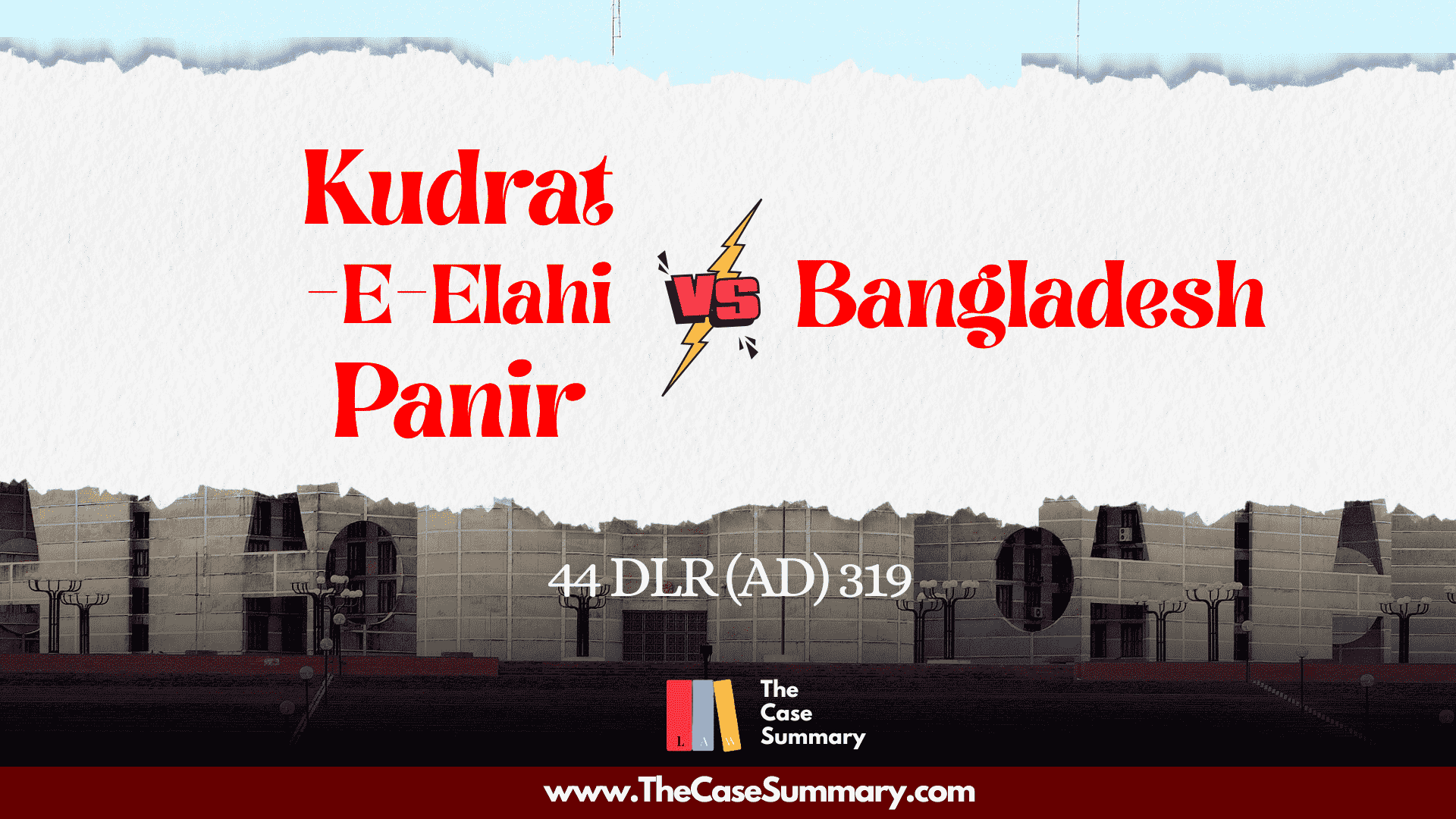Charles W. Baker vs Joe C. Carr
Citation: 369 U.S. 186 (1962)
Jurisdiction : United States of America
Plaintiff: Charles W. Baker et al.
Defendant: Joe C. Carr, Secretary of State of Tennessee et al.
Facts :
In Tennessee, the state constitution required legislative districts to be reapportioned every ten years; however, no changes had been brought up since 1901, despite massive population shifts. Urban areas such as Memphis grew rapidly while rural areas declined, and both still sent the same number of representatives to the legislature. There was vote dilution had been occurring: urban votes had been worth far less than rural votes. Hence, Charles Baker and several other citizens challenged the system as a violation of the Equal Protection Clause of the Fourteenth Amendment. The lower court had dismissed the case as a “political question” beyond judicial scrutiny, but the Supreme Court granted certiorari, setting before it a landmark question of whether or not courts could review apportionment.
Issues :
1. Whether a federal court has jurisdiction to hear a constitutional challenge to a state’s legislative apportionment plan.
2. Whether a matter traditionally considered a political question can be adjudicated when it implicates constitutional rights.
3. Whether clear judicial standards exist to guide the resolution of such constitutional claims.
Arguments :
Petitioner’s Arguments:
The petitioners contended that Tennessee’s old apportionment plan flagrantly violated the Equal Protection Clause of the Fourteenth Amendment, creating extreme disparities in representation where urban votes carried far less weight than rural ones. They emphasized that the courts, as the ultimate protectors of constitutional rights, were obligated to address this issue, which they argued was fully ripe for judicial decision. Furthermore, they maintained that this case was fundamentally different from Colegrove v. Green, as it concerned a clear constitutional right rather than a mere political question.
Respondent’s Arguments:
The respondent argued that the matter of legislative apportionment was a political question which according to the constitution was reserved for the state legislature, thus beyond the reach of the judiciary. They contended that there were no clear judicial standards for determining fair representation and that judicial intervention would amount to a violation of the principle of separation of powers. Based on the precedent set by Colegrove, they insisted that apportionment matters should remain in the realm of politics, not in the judiciary.
Decisions :
In Baker v. Carr, the Supreme Court, by a 6–2 majority, held that federal courts have the authority to adjudicate claims challenging the unfair distribution of legislative seats. Justice William J. Brennan Jr., writing for the Court, observed that Tennessee had neglected to reapportion its legislative districts for decades, resulting in severe voter inequality: urban voters were significantly underrepresented compared to rural voters, thereby violating the Equal Protection Clause of the Fourteenth Amendment. The Court emphasized that this was a constitutional issue, not a mere political question, and that courts have a duty to intervene when political action infringes upon constitutional rights.
To delineate the boundaries of the “political question” doctrine, Justice Brennan identified six guiding factors:
- Textual Commitment – the Constitution assigns the issue to another branch.
- No Judicial Standards – lack of clear legal rules for the Court.
- Policy Decision – the issue requires political rather than legal judgment.
- Respect for Other Branches – ruling would show disrespect for another branch.
- Prior Determination – another branch has made a final decision.
- Confusion Risk – multiple branches might issue conflicting decisions.
The dissenting opinions, authored by Justices Felix Frankfurter and John Marshall Harlan, cautioned that the Court was entering a “political thicket” better left to elected officials, and Harlan further contended that the Constitution did not require absolute equality in district populations.
Relevant Legal Principle :
Doctrine of Political Questions: The Doctrine of Political Questions recognizes that some issues are more appropriately resolved by the political branches, either the executive or the legislature, rather than by the courts. Under this principle, the judiciary refrains from intervening in matters that require political discretion, policy judgment, or lack clear legal standards. It reflects the understanding that certain questions are so politically sensitive that they lie beyond the proper role of an apolitical judiciary.
Author :
1. Saraf Al Sakif
Note : The Case Summary is a platform by the law students, for the law students. We aim to summarize the facts and decisions of various important cases in both Bangla and English with utmost caution. However, this platform is in no way a replacement for going through the complete judgements by the law students and we discourage any learner from relying on case summaries alone. Thank you



